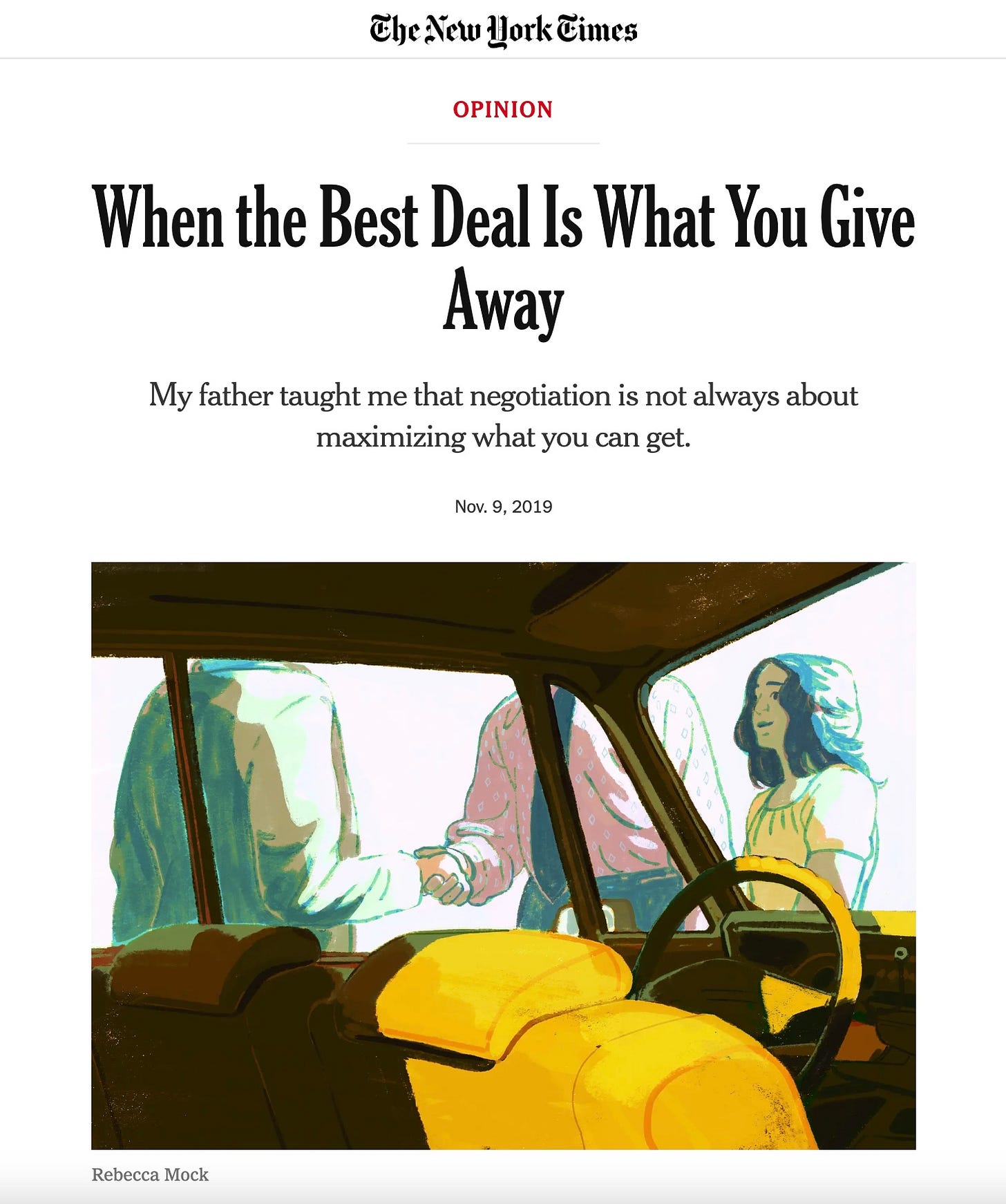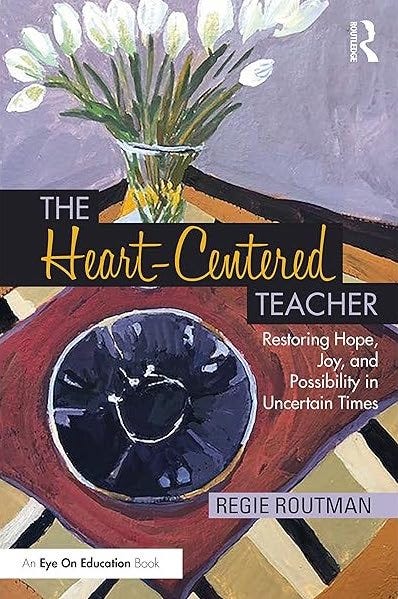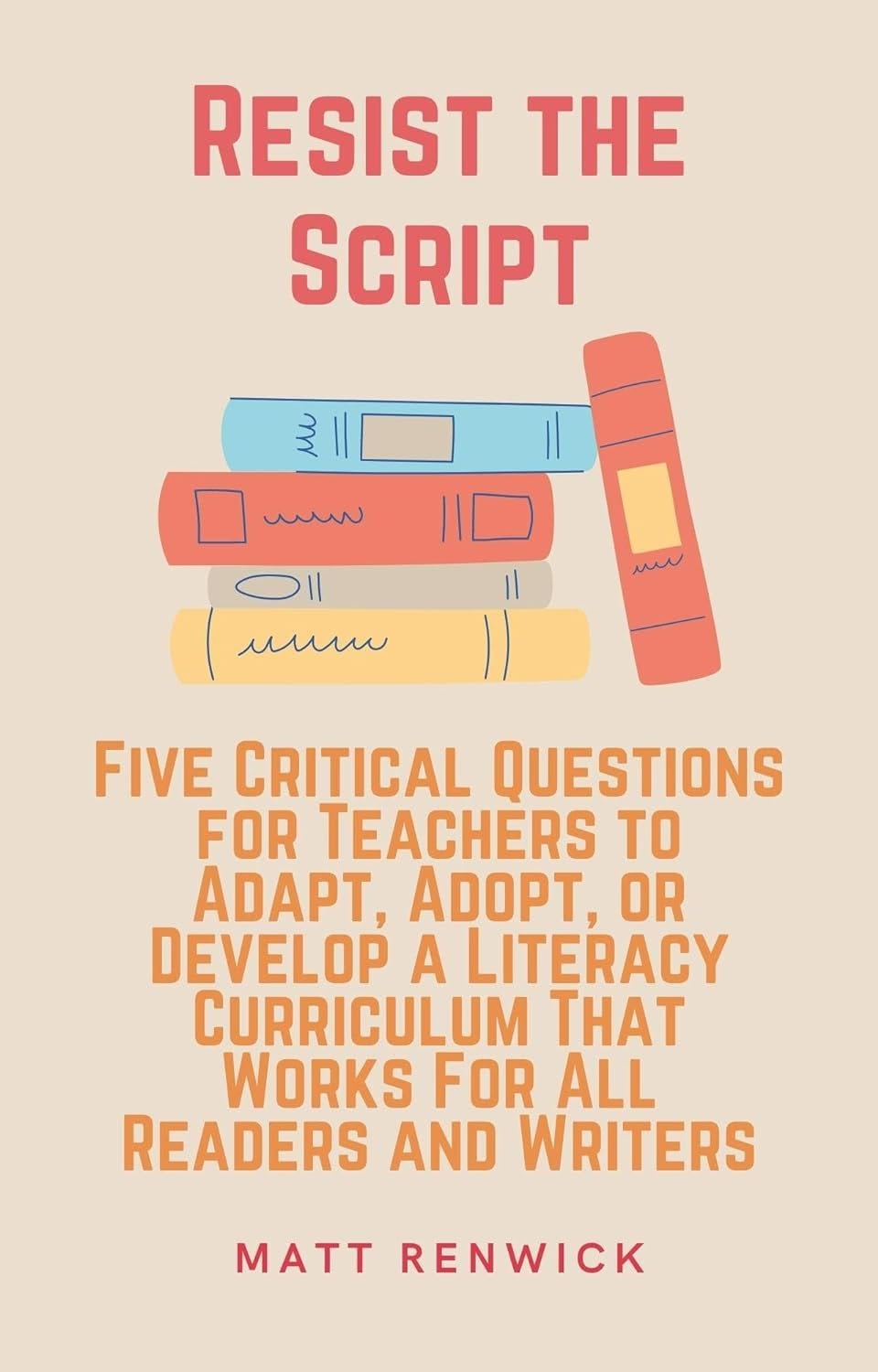11 Questions for Outlining a Personal Narrative
A Guide
One of my all-time favorite essays comes from The New York Times, "When the Best Deal Is What You Give Away" by Firoozeh Dumas.
I reread it once a year, usually in the fall as a reminder to be grateful for and generous with what I have. (You can read the essay for free here, my gift to you.)
What I also appreciate about this piece is what a wonderful model it is for writing a personal narrative. The writer’s description is rich. Dumas shows the individuals’ motivations and feelings through actions and dialogue. There are no wasted words; so much is said in a limited amount of text.
I have used this essay as an exemplar during writing workshops for teachers. We read it like a writer, looking for insights as to how Dumas crafted it and kept us reading.
Below are eleven questions I have teased out from many readings of the essay. Use them to help you and your students craft your own personal narratives. Or (and maybe better yet), write the essay first. Then use the following questions to reverse outline what you wrote during the drafting process to support revision.
What was the context: time, place, etc.? Use specific, sensory details to take the reader there.
What was the situation? Note who else was present, and who you were in that space - think identity.
What did you and/or others want; why was it so important? Show, don't tell.
What makes the people involved endearing and human? Dialogue helps.
At what point does your story shift to the eventual internal conflict?
What was the challenge - what obstacle(s) stood in the way of the desired outcome?
Was anything tried previously? If so, why didn't it work?
What was the moment when the answer revealed itself? Slow down. Include small details, including emotions, that you remember to help ground the story.
Why was the answer not obvious up until that point?
How does the ending circle back to the beginning - what's the payoff for the reader?
What is one key takeaway you want to leave for your reader?
If you try this resource out, let us know how it goes for you!
Did you find this article useful? Share it with a colleague!
Full subscribers have additional benefits, including access to print-friendly files of articles such as this one in the resources page. You can use these to support professional conversations in your school.
Sign up today to join us for this fall’s book club around Regie Routman’s newest publication. Click here for details including dates for discussion threads and live Zoom conversations.
Are you leading a literacy curriculum acquisition? Check out my toolkit Resist the Script: Five Critical Questions for Teachers to Adapt, Adopt, or Develop a Literacy Curriculum That Words for All Reading and Writers. This helpful implementation guide is only $7.



